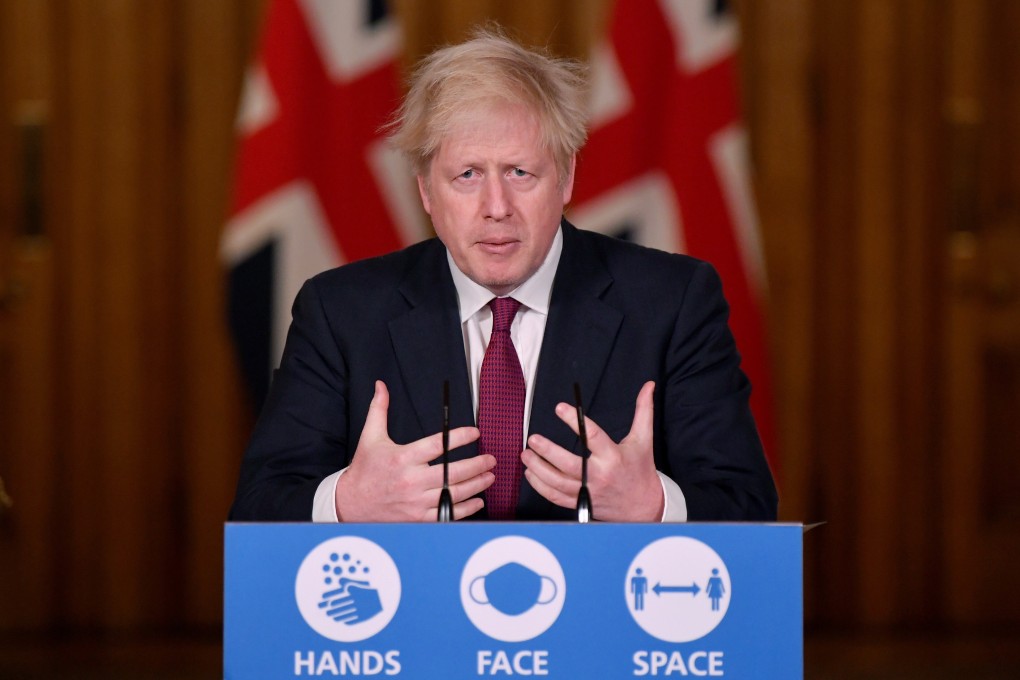Coronavirus: UK imposes stricter rules amid new Covid-19 strain
- All non-essential shops will close and the measures ban household mixing in London and the southeast
- Scientific evidence suggests the new variant is behind a huge surge in infections in recent days

The measures ban household mixing in the capital and the southeast, and restrict socialising to just Christmas Day across the rest of England. Residents across the country were told to keep to their local areas.
Johnson had originally planned to ease pandemic rules for five days during the holiday, but made an abrupt change of tack after emergency talks on the virus mutation with his top officials. Emerging scientific evidence suggests the new variant – which currently appears virtually unique to the UK – can spread significantly more quickly than previous strains in circulation and is behind a huge surge in infections in recent days.
“When the virus changes its method of attack we must change our method of defence,” Johnson said at a news conference on Saturday. “Without action the evidence suggests infections would soar, hospitals would become overwhelmed and many thousands more would lose their lives.”

01:44
Links between brain disorders and coronavirus infections under investigation in the UK
Covid-19 case rates nearly doubled in London over the past week, with almost 60 per cent of these infections attributed to the new strain, according to government officials.